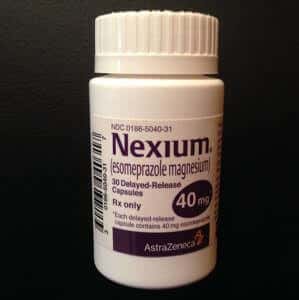
Is your heartburn drug harming you? Acid-suppressing drugs are among the most popular pills in the pharmacy. But evidence is growing that they may produce some unexpected and unpleasant complications.
Over the last couple of decades, drugs like Aciphex (rabeprazole), Prevacid (lansoprazole), Prilosec (omeprazole), Protonix (pantoprazole), Nexium (esomeprazole) and Zegerid (omeprazole plus sodium bicarbonate) have become the go-to drugs for reflux relief.
The FDA has determined that these drugs are so safe that they can also be purchased without a prescription. You can now find Prilosec OTC, Prevacid 24HR and Zegerid OTC along with house-brand omeprazole.
But how safe are these proton pump inhibitors (PPIs)? The health advocacy group Public Citizen has just filed a petition with the FDA to add a prominent black box warning to the label of all PPIs. This is the most powerful signal the FDA can send to consumers and health professionals that the drug may cause very serious side effects.
One risk that Public Citizen has highlighted is rebound acid production that can make it extremely difficult to stop taking a PPI. Research has shown that even healthy people who did not have heartburn previously may develop symptoms after stopping a PPI (American Journal of Gastroenterology, July, 2010).
Doctors might assume that this is simply the underlying disease re-asserting itself, but in fact it is the body reacting to strong acid suppression. One reader reported, “I never had acid reflux before I took Protonix but now, as I’m trying to get off of it, I do!”
Public Citizen is also asking the FDA to warn about an increased risk of fracture associated with long-term use of PPIs. People with osteoporosis may be more likely to break a wrist or hip while taking one of these acid-suppressing medicines.
Serious infections, including pneumonia and bacteria causing diarrhea, are more common among people taking PPI drugs. Such drugs may also increase the risk for magnesium deficiency, which can lead to irregular heart rhythms. In addition to magnesium, long-term use of PPIs may trigger a deficiency of vitamin B12. This could result in nerve pain, confusion and memory problems as well as blood abnormalities.
Public Citizen is also concerned about potential drug interactions with medications such as clopidogrel (Plavix). This anti-clotting medicine prescribed for people with stents in their arteries may not be as effective when people take drugs like omeprazole or Nexium.
Finally, concerns have been raised about an association between long-term use of acid-suppressing drugs and esophageal cancer (Archives of Internal Medicine, Oct. 25, 2010). Although many physicians prescribe PPIs specifically to reduce this risk, there is some worry that these drugs may merely mask symptoms without actually protecting the esophagus from damage (Archives of Surgery, July, 2011).
Acid-suppressing drugs do play an important role in healing ulcers and controlling severe reflux symptoms. Whether such drugs get a black-box warning or not, doctors and patients should be better informed about the potential risks of long-term use.

